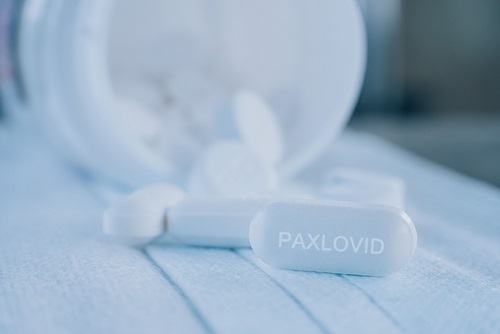Nirmatrelvir–ritonavir (Paxlovid) significantly reduced the likelihood of hospitalization or death from COVID-19 in people at risk of severe illness, according to new research in CMAJ (Canadian Medical Association Journal).
The study, conducted by Ontario researchers, aimed to evaluate the effectiveness of nirmatrelvir–ritonavir in preventing severe illness during the emergence of the Omicron variant. They looked at data on adults with mild disease who tested positive for SARS-CoV-2 by polymerase chain reaction (PCR) test between April 4 and August 31, 2022, and compared 8876 patients treated with nirmatrelvir–ritonavir with 168 669 who were not treated. Most patients were older than 70 years, were vaccinated and had potential drug–drug interactions.
A previous randomized controlled trial, Evaluation of Protease Inhibition for COVID-19 in High-Risk Patients (EPIC-HR), conducted before the emergence of the Omicron variant had found nirmatrelvir–ritonavir to be effective at treating patients. That trial, however, did not include people who had been vaccinated or who had potential drug–drug interactions.
“Our study, in conjunction with previous clinical trials and observational research, supports the effectiveness of nirmatrelvir–ritonavir at reducing hospital admission from COVID-19 and all-cause death,” writes lead author Dr. Kevin Schwartz, Public Health Ontario and ICES, Toronto, Ontario, with coauthors.
They found that for every 62 people treated with nirmatrelvir–ritonavir, the medication prevented 1 case of severe COVID-19.
According to Dr. Schwartz, “This study highlights the importance of testing for SARS-CoV-2 if you have symptoms, and access to Paxlovid for those at risk for severe COVID-19. If you test positive for COVID-19, are over 60 years of age, or if you have other risk factors for severe infection, such as chronic medical conditions or are undervaccinated, contact your health care provider or pharmacy within 5 days of symptoms starting and ask about Paxlovid.”
“Population-based evaluation of the effectiveness of nirmatrelvir–ritonavir for reducing hospital admissions and mortality from COVID-19″ is published February 13, 2023.




